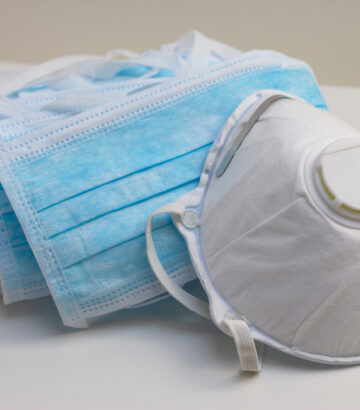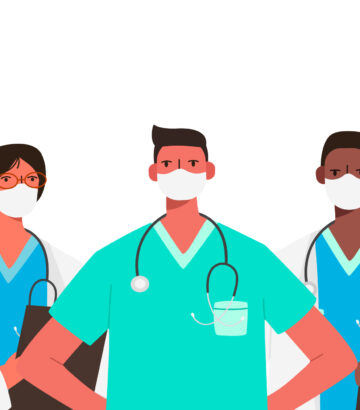HICPAC Public Comments Clips
Yaneer Bar-Yam
My name is Yaneer Bar-Yam, I am professor and president of the New England Complex Systems Institute and a co-founder of the World Health Network.
I have six statements to make:
1) The evidence review of N95s respirators compared with surgical masks cited today is incorrect because it is based upon incorrect mathematical assumptions. Even though the studies admit limitations, the mathematical expressions used to evaluate uncertainty intervals is incorrect, both in their means — the results are biased toward null results, and in their range, resulting in smaller ranges than is consistent with the study data. Again, while the limitations of the RCTs are often acknowledged, the mathematics of those studies and of the meta analyses is not corrected to account for those limitations, and thus the study conclusions are based upon the wrong analysis. The evidence review also chose studies that are subject to these errors, omitting many scientific studies whose results indicate that N95s are much better than surgical masks. We have previously published one relevant study on mask study assumptions with a title starting “Unmasking the mask studies” and will submit a second study shortly which we can provide to the panel.
2) While invalid, the dismissal of the increased effectiveness of N95s by those studies does not apply to elastomeric masks or PAPRs. Just as for many other measures, scientifically validated causal transmission mechanisms demonstrate their effectiveness. Thus, higher levels of protection from transmission are available and can and should be used in practice and adopted in policies.
3) Where are the studies measuring the impact of provider N95 respirators on patients? Absent. Also the adverse effects. Current UK reports say over 1/4 of infected patients were infected in the healthcare setting. Their death rates are also much higher.
4) The Isolation Precautions Guideline Workgroup materials do not directly mention asymptomatic transmission and should.
5) It should be a given that protecting individuals who are vulnerable to consequences of COVID infection should be a top priority in healthcare settings whose responsibility is making people well, not sick.
6) Everyone is vulnerable to organ damage from COVID, this includes but is not limited to Long COVID symptoms. This should be mentioned, indeed it should be emphasized in your statements and referred to in your policy recommendations.
Greta Fox
I am a nurse practitioner with a degree in family and community health and a founding member of the World Health Network. My concern is that this committee is making a grave error in lumping masks, gowns and gloves together. Masks and respirators are respiratory protection against airborne pathogens. In combination with gowns and gloves they are barrier protections against body fluid contact. This is basic. According to the World Health Organization, COVID is still a threat. It is a preventable airborne infection and leading cause of death, which is killing a person every 4 minutes worldwide. According to Fauci, there is no herd immunity with a continually mutating virus. The arsenal of effective treatments is shrinking, as is access to vaccines, tests and treatments. And the infection poses a risk of disabling long COVID, and it goes up with repeated infections. I am speaking up for patients. Any individual anywhere in the facility could be immune compromised, or live with someone who is, or simply prefer not to become infected with a biohazard level three pathogen, which is proven to damage the immune and vascular systems and other organs and systems as well. One-way masking is insufficient protection and is impossible for patients who are disabled or unconscious or babies or children to choose to protect themselves. And limiting protection to specific areas of the hospital fails to protect people in waiting rooms, elevators, restrooms, etc. We’ve been advocating for N95s for health care workers for reasons already presented. Now we have to beg health care workers to at least wear anything—with no guarantee that this request for accommodation will be granted. Patients are putting off necessary health care because they are afraid of being harmed. We do not consent to risking forced infection, disability and death in order to access health care, nor should we have to. Thank you very much for the opportunity to comment.











